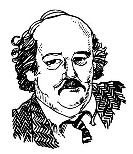Syndicated to Kansas newspapers Aug. 14, 2017
 We’re into months of candidates and near-candidates and possible candidates shuffling around ahead of the June 1, 2018, filing deadline, formally naming campaign treasurers and starting campaigns.
We’re into months of candidates and near-candidates and possible candidates shuffling around ahead of the June 1, 2018, filing deadline, formally naming campaign treasurers and starting campaigns.
It’s going to be an unusually busy fall this year as the statewide officeholders decide whether to keep their jobs or seek higher offices, plus 125 Kansas House seats (and so far, just one Senate seat, that of May 1 sworn-in Sen. Richard Hilderbrand, R-Pittsburg) are up for grabs in the 2018 elections.
With all that political gamesmanship under way, there is a key date in the new calendars that will likely have a dramatic effect on those campaigns, and whether some Kansans decide to spend the summer mowing instead of campaigning: Friday, April 20, 2018.
No, it’s not the national marijuana day—that 4:20 celebration—it’s also the date when the state’s best economic experts, the Consensus Revenue Estimating Group, predict whether the state will have enough revenue on hand to finish out what will be the remaining two-plus months of this fiscal year and enough money to pay for expenditures budgeted for the coming fiscal year which starts July 1, 2018.
Not exactly what most Kansans consider the date that the earth either shakes or doesn’t. But to a surprisingly large degree, it is an earth-mover.
Enough money? Everything is good.
Not enough money? Then there must be, just before the primary election, cuts in spending on things that most Kansans want money spent on. Like social services, roads, law enforcement and corrections…you name it, someone out there wants it done with his or her tax money.
Or…there could be just-before the Legislature adjourns increases in taxes. That’s not anything an incumbent wants to campaign about or read on his/her opponent’s campaign cards, is it?
And that final estimate of revenues will be made just three days after what is likely to be the biggest influx of state income taxes in years. Key, remember, is that the massive income tax increases voted by this spring’s Legislature became effective retroactively to Jan. 1, 2017, and Kansans have been essentially given until April 17, 2018, to pay those taxes without penalty.
That extra time before penalties kick in means that if you don’t have adequate paycheck withholding you must come up with a big check for the state by April 17. Plus, folks who have LLCs or other businesses that for the past four years have been exempted from state income tax on “non-wage income” will be writing checks to the state on that date also. These last-minute payments essentially shake the state’s ability to monitor monthly how revenues are coming in.
Practically, if you have to pay taxes above your withholding, or try to remember just where you pay those income taxes if you’re coming off a four-year tax holiday, you aren’t going to be paying this year’s retroactive taxes early.
It’s that time-value of money deal. If you can earn another month or two of interest on your non-wage income, you’ll do it. That’s just marginally smart business. You pay your bills on the deadline, not early.
So those April receipts? Three days after the no-penalty payment deadline, they get ground into that Consensus Revenue Estimate that essentially decides what the governor and Legislature do to balance the budget. And, of course, whether voters are going to be inconvenienced and probably recall just who inconvenienced them when they see the name on the ballot.
Right now, before we know how this year’s tax increases work out, there are a lot of issues for candidates to talk about.
Those issues might change on April 20, 2018.
